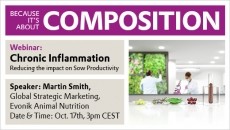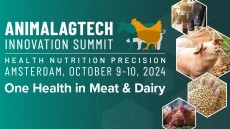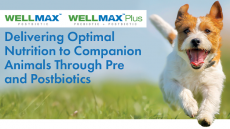AAFCO considers new regulatory pathway for feed ingredients

AAFCO’s longstanding ingredient definition request process officially concluded on October 1, 2024, following the expiration of AAFCO’s Memorandum of Understanding (MoU) with the US Food and Drug Administration (FDA).
The proposal from K-State Olathe aims to provide a faster, science-driven pathway that could bring new feed ingredients to market in a fraction of the time. “AAFCO has been exploring innovative options to create a more efficient and thorough review process for new ingredients,” reports Austin Therrell, executive director of AAFCO. “K-State Olathe’s proposal is comprehensive and scientifically robust.”
One of the key benefits of the new pathway is speed, he tells FeedNavigator.
According to Therrell, while the former FDA-led process could take up to 180 days or more, the proposed review process could be completed in 60-90 days. However, the new process will come with associated costs, unlike the free FDA service, and the review will be conducted by an independent panel of experts rather than FDA’s Center for Veterinary Medicine.
The panel, consisting of subject matter experts from universities across the US and independent consultants, will represent diverse animal species and evaluate ingredient submissions from the industry. Their recommendations will be reviewed by AAFCO membership for final approval.
Approved ingredients will be listed in AAFCO’s Official Publication, the most comprehensive global resource for approved feed ingredients, recognized by state and international regulators as well as the animal feed and pet food industries.
To ensure transparency and avoid conflicts of interest, K-State Olathe and AAFCO will carefully select the panel members, with final recommendations being presented to AAFCO in an open forum for discussion. "We remain committed to a transparent, objective, and collaborative approach that represents the interests of our state members and international agencies,” adds Therrell.
Dissolved partnership
The former ingredient review process, governed by AAFCO’s MoU with the FDA, had been in place for 17 years. The two organizations announced in August that the agreement would not be renewed, prompting the search for a new solution.
The purpose of the MOU was to clarify the responsibilities of both organizations during the feed ingredient definition request process and to provide mechanisms for resolving disputes and modifying definitions when required.
According to a statement from the FDA in early August, "the relationship between FDA and AAFCO is not ending, but it will be evolving. FDA will continue to participate in AAFCO committees and meetings and work closely with AAFCO and states to help ensure the safety of the animal food supply. The expiration of the MOU presents an opportunity for FDA to begin a thorough evaluation of its pre-market animal food review programs, in hopes of adapting to better serve public health and the needs of all stakeholders."
AAFCO is actively seeking feedback from feed regulators and industry experts on the K-State Olathe proposal, with comments due by October 31, 2024.
An AAFCO task force will review the input and suggest any necessary revisions before presenting a final recommendation to the board of directors.


















